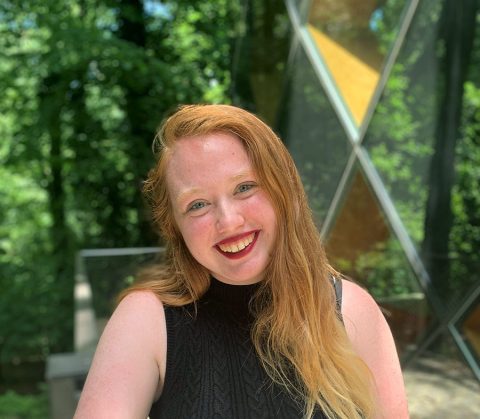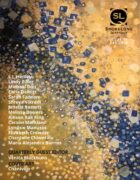Towards the end of the story, the narrator casually drops this bomb: “After all, the reason I turned her into a bear.” For me, that sentence upends the whole story: Instead of being (or simply being) a nurturing caretaker, the narrator is responsible for her sister being a bear. (I actually said out loud “Whoa!” when I read this line.) Tell me everything about this sentence: why you waited until the end; whether you always knew that the narrator had done this to her sister.
I did always know she had done this, but I waited to reveal it until the end for a few reasons. I like how the detail coming so late in the game makes the reader reanalyze the story and Sophia. I think if I introduced it too early, it would steal focus, but this way the reader can sink into the strangeness of the situation and then have the narrative surprise them later. And I think it mirrors her own thinking process in a revealing way—her being the one that turned her sister into a bear is not the first thing on her mind when she thinks about the situation. She offers up the information not as a guilty secret, but just as a matter of fact.
I have two daughters who went through a period of being obsessed with Brave (the Pixar/ Disney movie where the queen, voiced by Emma Thompson, turns into a bear). In the film, Merida is responsible for her mother’s transformation, though inadvertently so. Merida doesn’t know her mother will become a bear, but she is actively trying to free herself from her mother’s overbearing will, and to punish her mother. Do you see your narrator as acting punitively? Does she feel any regret?
I do see her as acting punitively and out of desperation. Changing her sister into a bear was a selfish way to feel in control of their relationship. I also think there’s a running undercurrent of protectiveness, which in this case has morphed toward possessiveness. She feels like she lost her sister a long time ago, anyway, before turning her into a bear, so the more profound regret for her is for how their relationship even got to this point. There is a brief moment near the end of the story where she has to remind herself that things are not worse than they were before, which I think you can read as her wrestling with regret, but even then, it’s centered on her own experience and needs rather than her sister’s.
Why does the narrator keep putting her hand in the empty wooden bowl to check if it’s warm? What would “warm” mean or reveal to her?
Sophia is so desperate to have a meaningful relationship with her sister that feeling the warmth she might have left behind in the bowl is her way to feel a sense of intimacy with her. When it’s not warm, she assumes it’s because time has passed, but at the end of the story, when she feels the bowl right after her sister has eaten and it’s still not warm, it just emphasizes the larger theme that she’s been seeking something she will never have, or perhaps just looking for it in the wrong places.
The narrator has a name (intriguingly, we hear it only when she’s imagining herself as the object of the townspeople’s pity, “Whispering Poor Sophia”). But her sister doesn’t—she is “my sister or “she” or “the bear.” Why?
When Sophia turned her sister into a bear, she wasn’t thinking about her sister’s life or friends or anything at all. I think she not only literally dehumanized her by turning her into a bear but has reduced her to the role of “sister” so much, almost as if she is just an extension of Sophia, that a name becomes irrelevant.
A line that kills me is, “The law of conservation of mass: we have simply rearranged the love that was already there into something palatable, like the treats I collect for her in the wooden bowl.” What is now “palatable” (such a bizarre adjective!) about their love?
I think this story has a lot to do with love language. People can express and experience love so differently, and that can cause friction if someone doesn’t feel like their personal needs are being met. Sophia didn’t feel fulfilled by her relationship with her sister and doesn’t feel needed by her anymore. She has done this unthinkable thing to reframe the narrative. She finally has something to offer her sister that her sister wants, in this case food. And now the reason her sister doesn’t talk to her is because she physically can’t, and I think that gives Sophia a strange peace of mind. Loving her sister and not feeling that same love in return was painful, but loving her as a bear who visits her made it easier. More bearable … if you’ll indulge me.



 The core workshop of SmokeLong Fitness is all in writing, so you can take part from anywhere at anytime. We are excited about creating a supportive, consistent and structured environment for flash writers to work on their craft in a community. We are thrilled and proud to say that our workshop participants have won, placed, or been listed in every major flash competition. Community works.
The core workshop of SmokeLong Fitness is all in writing, so you can take part from anywhere at anytime. We are excited about creating a supportive, consistent and structured environment for flash writers to work on their craft in a community. We are thrilled and proud to say that our workshop participants have won, placed, or been listed in every major flash competition. Community works.